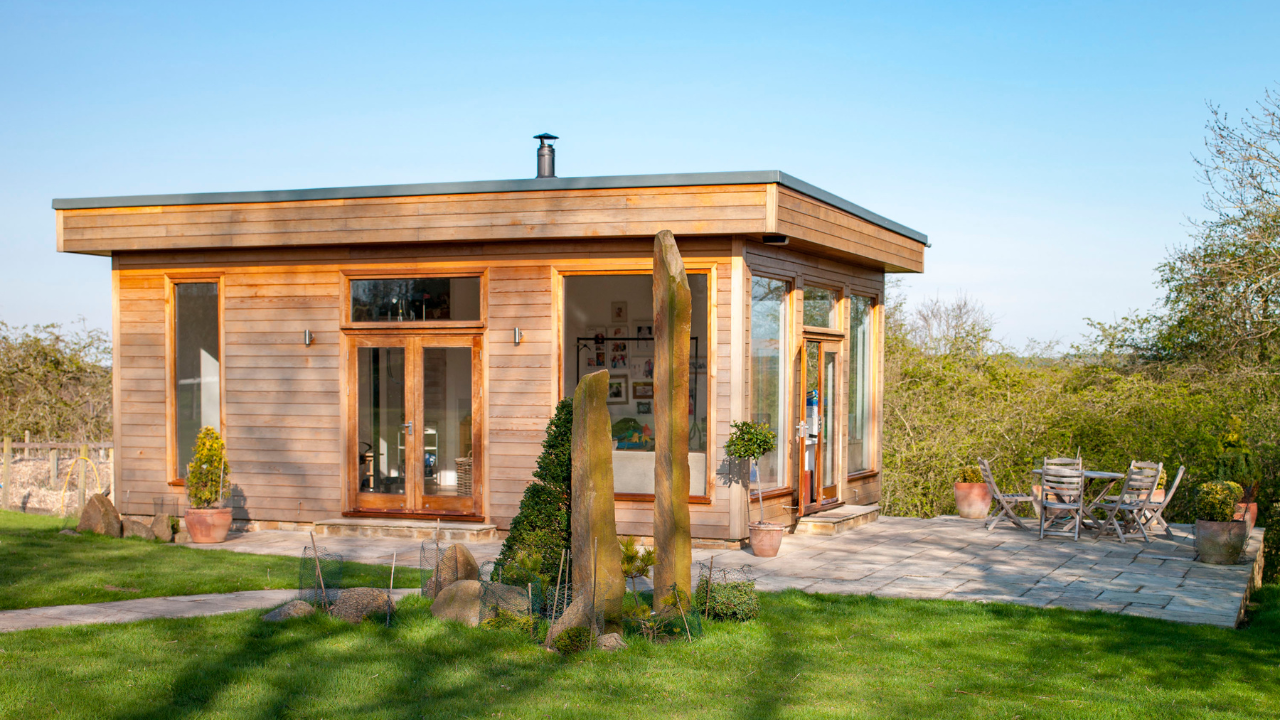
As remote work becomes more prevalent, homeowners are looking at ways to effectively use their property to meet new demands for office space, without compromising the comfort and functionality of their home living areas. Your garden is ideal for creating a dedicated work area that not only enhances productivity but can significantly boost the market value of your home.
You could build a garden office or a house extension – each offers distinct advantages and can greatly optimize your property but the right one for you depends on your personal and professional requirements.
The Difference Between The Two
A garden office is a standalone structure located in the garden, separate from the main house. This setup not only creates a distinct physical boundary between home and work life but can also be crafted to complement the aesthetics of your garden. They also will probably cost considerably less than a house extension to build.
On the other hand, a house extension is an expansion of your existing home structure. It can serve various purposes such as additional living space, a new kitchen, or even an integrated home office. Extensions are generally more complex and costly than garden offices and require adherence to more stringent planning permissions and building regulations.
Factors You Need To Consider
When deciding between a garden office and a house extension, several factors come into play:
- Time and Planning: Think about how long it will take to construct your extension compared to a home office and when you need it to be fully functional. You’ll have to wait for materials to be delivered and you may even need professional help with the construction.
- Cost and Investment: Extensions are often more expensive but can add considerable value to your home. Garden offices are less costly and can be installed quickly with minimal disruption.
- Planning Permissions: Depending on your location, planning permissions might be simpler for garden offices as many do not require full planning permission.
- Tools and Hardware: Building an extension may require a broader range of tools and hardware, which can add to the complexity and cost. Ensure you have a clear understanding of what’s needed before starting the project.
Which One is Best For You?
The decision largely hinges on your specific needs and circumstances. A garden office might be the best choice if you are looking for a cost-effective solution that separates your work from your home life. It’s particularly appealing if you have limited space in your home or if you want to minimize disruption during construction.
On the flip side, if you need a space that could serve multiple purposes and are prepared for a higher initial investment, an extension would be more suitable. It’s also worth considering if you plan on staying in your property long-term, as the increase in home value can offset the higher upfront costs.
See some more of my interiors posts here
